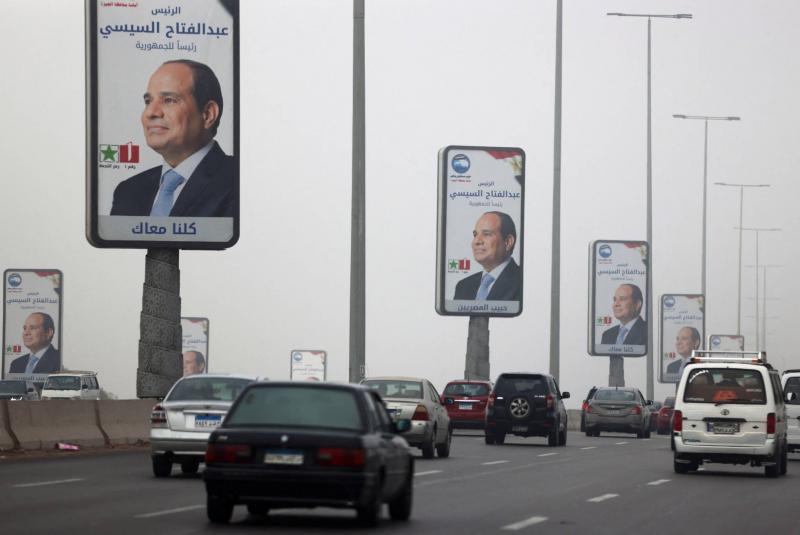Egyptian President Abdel Fattah el-Sisi is heading towards a third term victory in the elections scheduled from December 10 to 12. Below is a timeline of the ten years Sisi has spent as the most powerful person in Egypt.
* July 2013: Sisi, who was then Minister of Defense, deposes Egypt's first democratically elected president, Mohamed Morsi, a member of the Muslim Brotherhood, who came to power after the 2011 uprising that ousted the late autocratic president Hosni Mubarak.
* August 2013: Security forces kill hundreds of Morsi supporters in Rabaa al-Adawiya Square, marking the start of a wide-ranging crackdown against the Muslim Brotherhood, which has been designated a terrorist organization in Egypt.
* May 2014: After resigning from the military, Sisi is elected president of Egypt with a sweeping majority but a low voter turnout. His only rival at the time received only three percent of the votes.
* August 2015: In a move aimed at increasing state revenues in dollars, Sisi inaugurates the expansion of the Suez Canal, which is one of several major projects emblematic of his rule, including the construction of a new administrative capital in the desert east of Cairo and a high-speed rail network.
* November 2016: The central bank devalues the pound by about a third, shortly after which the International Monetary Fund approves a $12 billion loan for Egypt's struggling import-dependent economy.
* 2016-2017: Sisi faces popular backlash and legal difficulties after his decision to hand over two uninhabited islands in the Red Sea, Tiran and Sanafir, to Saudi Arabia, which has provided billions of dollars in aid and investments to Egypt during his rule.
* November 2017: The Sinai Province, an affiliate of the Islamic State group, kills more than 300 people in a mosque in the Sinai Peninsula, marking one of the deadliest attacks by militants since Morsi's ouster. Sisi subsequently launched a military operation focused on North Sinai, allowing the state to ultimately strengthen its grip on the region.
* April 2018: Sisi announces his reelection for a second term after receiving 97 percent of the votes again. At that time, his main rival in the election was arrested, while others withdrew before the vote.
* April 2019: A referendum is held to approve constitutional amendments to extend presidential terms and allow Sisi to run for a third term, as well as to tighten his and the military's control over the government. Opponents described these moves as a power grab.
* March 2020: Amid the tourism sector's impact due to the COVID-19 pandemic, continuous financial flows from the IMF and other international financial institutions help Sisi proceed with massive projects, including the new administrative capital.
* February 2022: The Russian invasion of Ukraine and rapid capital outflows lead to a series of sharp devaluations of the pound starting in March, causing a scarcity of dollars as the country faces an economic crisis. Many Egyptians encounter soaring inflation rates while already struggling with financial hardships.
* October 2023: The conflict between Israel and the Palestinian Islamic Resistance Movement (Hamas) in the Gaza Strip allows Egypt to play a diplomatic role in mediating the delivery of aid and negotiations for the release of hostages while Cairo vocally rejects any mass displacement of Palestinians.




